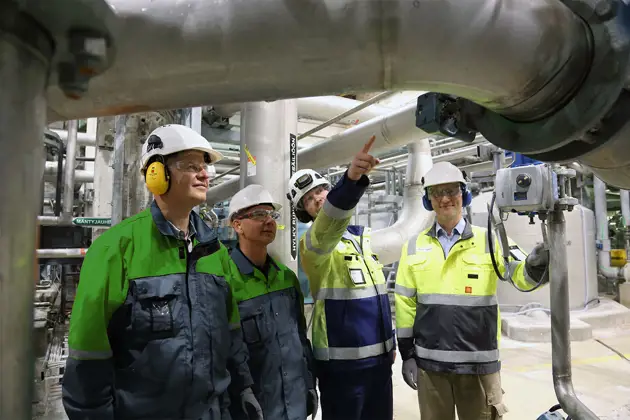The world is moving toward cleaner fuels and environment-friendly energy sources. In recent years, this shift to a more conscientious attitude toward the environment has become a trend in industry, creating more challenges for all of us.

In the energy industry – although it will put more demands on devices – the recipe for success seems simple: Produce higher yields from the renewable feedstock as efficiently as possible.
Sounds like a plan! But it does present a difficult set of challenges for the devices supporting such energy-efficient operations – like process valves. Especially when the mediums used in the process are sticky, dry or unfavorable for components and instrumentation.
Many challenges in pursuit of excellence
In the petrochemical industry, for example, this medium might be toluene, a colorless chemical compound, or the superheated steam typically used in power plant processes. Both are known as dry, non-lubricating fluids. Or sometimes even more aggressive mediums are employed, capable of causing erosion and rapid system degradation.
Producing a higher yield of fuels cleaner, faster and at higher volumes means that valves involved in such high-efficiency processes will also have to handle higher temperatures, higher pressures, higher cycling as well as meet strict tightness requirements in control valve duty. They will need more accurate controllability, along with ultra-reliable operation and maximum uptime. All of this, with the additional challenges set by troublesome fluids.
Therefore, the right valve selection with a focus on its material is a must.
Chromium Carbide coating saves the day
For some time, solutions have been developed for processes using non-lubricating mediums. One of these is a Chromium Carbide (CrC) hardfacing applied to the trim and seat of a valve. For example, Neles' R Series valves have this hardfacing as an option for their standard stainless-steel parts.
The CrC coating has demonstrated unrivaled capabilities when operating with non-lubricating process mediums. It has excellent resistance to high temperatures, helps prevent flashing or cavitation, and has sufficient hardness to resist erosion. With these proven characteristics, valves with CrC hardfacing ensure faster valve stroking.
Toluene tested, customer approved
At Neles, together with an experienced customer, the R Series valve with CrC coating on a segment and its seat was tested with toluene.
The test ran through a total of 100,000 mechanical cycles, where one valve cycle equals 0% closed to 100% opened to 0% closed. Several fast stroking steps in the cycle, requiring accurate controllability, were also run as part of the test.
After the testing phase was completed, disassembly and inspection were carried out. Results were amazing. The valve’s segment parts all remained in excellent condition.



